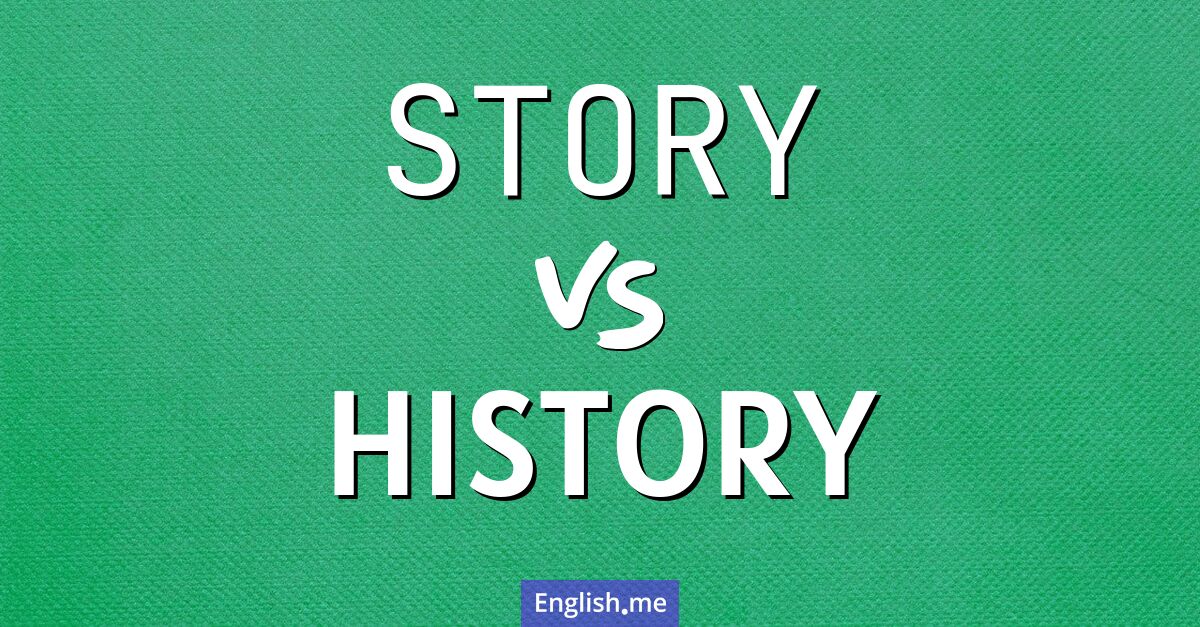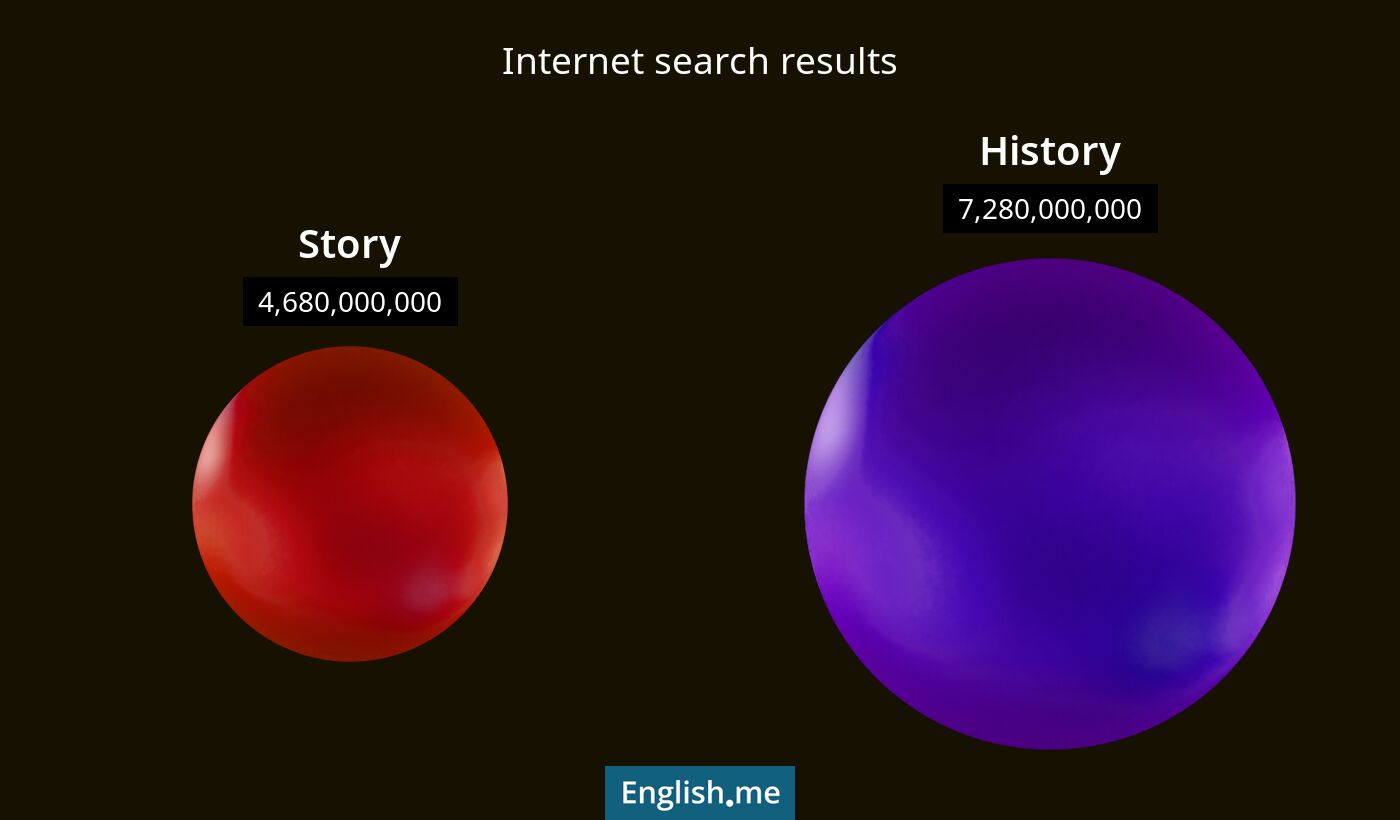Echoes of the past: "story" vs. "history"
Reviewed and edited by  Anwar Kareem 12/11/2024, 12:15
Anwar Kareem 12/11/2024, 12:15
English.me team member

 What is similar?
What is similar?
Both "story" and "history" refer to narratives involving events, people, and places. They can be verbal or written accounts.
 What is different?
What is different?
The word "history" typically refers to recorded events of the past, focusing on real events and developments over time, often in a formal or scholarly context. "Story", on the other hand, is more general and can refer to both fictional and non-fictional narratives, commonly used for entertainment, moral, or educational purposes.
 Which one is more common?
Which one is more common?

 Examples of usage
Examples of usage
Story- She told me a fascinating story about her travels in Africa.
- The children gathered around to listen to the bedtime story.
- His life story is one of triumph over adversity.
- The professor gave a lecture on the history of the Roman Empire.
- She has always been interested in medieval history.
- They are studying the history of art in school.

 English
English español
español française
française italiano
italiano deutsche
deutsche 日本語
日本語 polski
polski česky
česky svenska
svenska Türkçe
Türkçe Nederlands
Nederlands